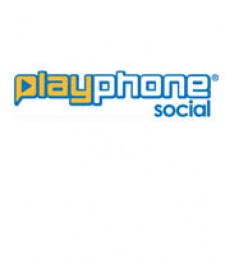Social gaming platforms might set out with the intent of bringing players together in titles, but they're currently locked in battle as to which network has the widest reach.
Outside of major Asian players such as DeNA, GREE and PapayaMobile, PlayPhone's strength or so the company believes is its knowledge of markets in the west.
Those trying to operate the model they've perfected in Japan, claims senior VP and GM Anders Evju, will soon find such tactics can't be applied in markets such as the US.
We caught up with Evju for his take on the shifts in social gaming market, and where the firm's Social Gaming Network (SGN) stands after a year in the game.
Pocket Gamer: How has PlayPhone's first year been?
Anders Evju: It's been exciting and very rewarding. Building a bleeding-edge social gaming platform in a way that is actually social is difficult.
Different platforms have different types of players, different types of developers, different toolsets, and wildly different mindsets. Coming up with a list of features that players want, developers want to use, and will work in multiple different environments is incredibly challenging.
One of the best validations we've received is the warm endorsement from US carriers. The one I can mention is our great relationship with AT&T. But stay on the lookout for some other really big carrier announcements coming soon.
Basically, when it all came together for the launch of our new platform, we were ecstatic to see players engage at incredible levels. It feels good to us and, obviously, developers have responded well.
In February you launched a $10 million marketing fund to aid social studios. 10 months on, how is the fund performing?
The fund has exceeded our expectations. Weve had over 1,600 developers sign up already and many more signing up every day.
The fund gives smaller developers the ability to compete with organisations ten times their size. Given the opportunity to develop a dedicated user base, good games are able to become great games. Feedback for developers is huge, and our marketing fund spreads the word and gets games into players' hands.
Where does SGN fit in compared to your rivals?
Our SGN is really ahead of our rivals in two principle ways.
Firstly, PlayPhone is the only SGN that is not primarily focused on developing first party content. GREE, ngmoco/DeNA, and PapayaMobile all are in the business of selling their own social games.
That's great for them, but creates a huge conflict of interest that should scare developers. Developers' games shouldn't be used as marketing vehicles to sell GREE, ngmoco, or Papaya's first party games!
At the end of the day GREE, ngmoco, and Papaya are in business to sell their own content, and are using their SGN - and the developers utilising it - to move their own product.
Secondly, PlayPhone is a true 'social' gaming network. Leaderboards are not social, achievements are not social. They are great to have, and we have these features too, but they are not social in-and-of themselves.
Cross-platform multiplayer with chat is social. Being able to steal your friends crops and then brag about it to him is social. GREE can't do this, ngmoco can't do this, and Papaya can't do this.
PlayPhone can do this today - not a "coming soon feature" but available and in use right now.
GREE and DeNA have made significant investments in the social gaming scene. What's your take on this?
GREE and DeNA are buying their way into the western market. Both have had huge success in Japan on feature phones and are trying to replicate that success in the US smartphone market by spending huge amounts of money.
The issue is that they are trying to create smartphone platforms based on wildly different data. Japanese consumer spending habits on a feature phone is not the same as American spending habits on an Android device.
PlayPhone is a 100 percent smartphone platform, built for the western market based on key learnings based on our last 20 years in mobile. The investments we are making including supporting developers, helping them market their games, and adjusting our platform to better serve developers and
players.
How are games performing on SGN?
Our games are performing extremely well. PlayPhone has over 35 million registered users, and were currently pushing 1-2 games live per week.
We are very selective in choosing our partners and content going live on our network, and we are very happy with the usage, engagement, and continued evolution of both our platform and titles.
We're seeing amazing trends with very positive increases in game downloads, DAUs, session times and ARPU. Players are inviting friends and coming back day after day.
Users have really embraced the simplicity that our SGN offers as far as multiplayer between platforms, sending challenges, socializing between players, and all of that leads to increases in daily usage and monetisation for developers.
You also had a hand in the HTML5 market. Do you see HTML5 development dominating in the years to come?
PlayPhone is the only SGN that supports HTML5 and we are very bullish about where we see HTML5 heading. We see HTML5 as a fantastic solution to the ever-growing issue with fragmentation as well as a way to standardise developer content.
HTML5 works on almost every smartphone or tablet in the world, can be deployed quickly and without the politics that come from an operator or carrier run store, and has enormous potential.
With PlayPhone, HTML5 developers can also now easily handle billing and monetisation, distribution, and socialisation in their games.
Thanks to Anders for his time.
GREE and DeNA making a mistake trying to apply Japanese social gaming model in the west, claims PlayPhone's Anders Evju
One size does not fit all





















